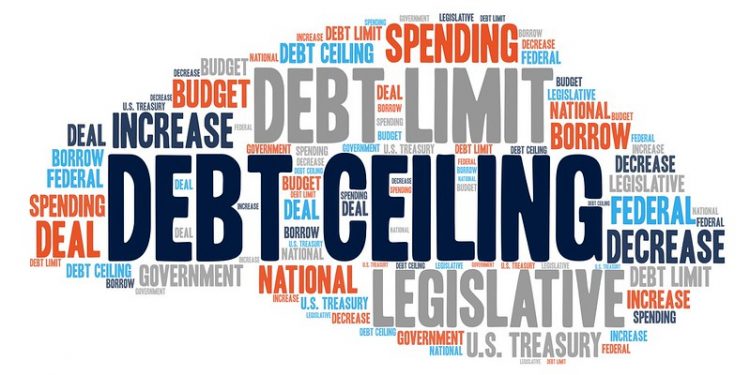The United States finds itself in a precarious financial situation as it nears the debt ceiling of $31.4 trillion. Failure to raise the debt ceiling by June 1 could result in a default on its sovereign debt, causing severe repercussions for the US economy and the global financial system. In the midst of this crisis, there is growing speculation about the potential impact on cryptocurrencies such as Bitcoin. This article explores the US debt ceiling issue and its potential influence on the world of cryptocurrencies.
The US Debt Ceiling Crisis Unveiled
As reported by Treasury Secretary Janet Yellen, urgent action is required to lift the debt ceiling and prevent a catastrophic default on US debt obligations. Bipartisan negotiations are underway, but the butting of heads between Democrats and Republicans poses a major challenge. The Democrats advocate for raising the ceiling without conditions while Republicans are pushing for substantial cuts in government spending as a prerequisite.
The Consequences of a US Government Default
Experts widely agree that a default on US government debt would have far-reaching consequences, both domestically and globally. The stock markets could experience a severe downturn, leading to substantial losses for investors.
Furthermore, the economy could spiral into a recession, resulting in widespread job losses and a decline in overall economic growth. The global financial system would face serious turmoil, too, given the central role of the US dollar in international trade and finance.
The Potential Impact on Bitcoin and Cryptocurrencies
Amidst the uncertainty surrounding the US debt ceiling crisis, attention has turned to the potential influence on cryptocurrencies, particularly Bitcoin. Cryptocurrencies, with their decentralized nature and independence from traditional financial systems, have gained popularity as an alternative investment and store of value.
Increased Demand for Cryptocurrencies
In times of economic uncertainty, investors often seek refuge in assets that are perceived as less vulnerable to the fluctuations of traditional markets. Bitcoin, being the most prominent cryptocurrency, could attract increased demand as investors look for a hedge against the potential consequences of a US debt default.
Over the years, Bitcoin has presented itself as more accessible than gold. In several cases, it has also outperformed this traditional hedge, which is the reason for its ongoing widespread adoption.
Perception of Cryptocurrencies as Safe Havens
The instability caused by a US government default may lead to a loss of confidence in traditional financial systems. This could bolster the perception of cryptocurrencies, particularly Bitcoin, as safe-haven assets that are not subject to the same risks associated with fiat currencies. Consequently, more individuals and institutional investors may turn to cryptocurrencies as a means to protect their wealth.
Volatility and Speculation
The correlation between traditional financial markets and cryptocurrencies is complex and multifaceted. While some investors may view cryptocurrencies as a safe haven, others may see them as highly speculative assets prone to significant volatility.
In the event of a US government default, the market uncertainty and panic could lead to increased price volatility for Bitcoin and other cryptocurrencies. As such, it could also trigger a bear market for these digital assets as investors will become more risk-averse along the way.
Final Thoughts
The US debt ceiling crisis represents a vital threat to the stability of the global financial system. The potential default on US government debt would have dire consequences for the US economy, including a possible recession and job losses. In this environment of uncertainty, cryptocurrencies like Bitcoin may experience increased demand as investors seek alternative stores of value.
While the exact impact on Bitcoin and other cryptocurrencies remains uncertain, the potential for increased adoption and price volatility cannot be ignored. As the situation unfolds, it is essential to monitor the developments surrounding the US debt ceiling and its potential implications for the world of cryptocurrencies.










